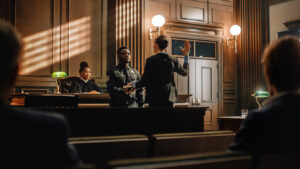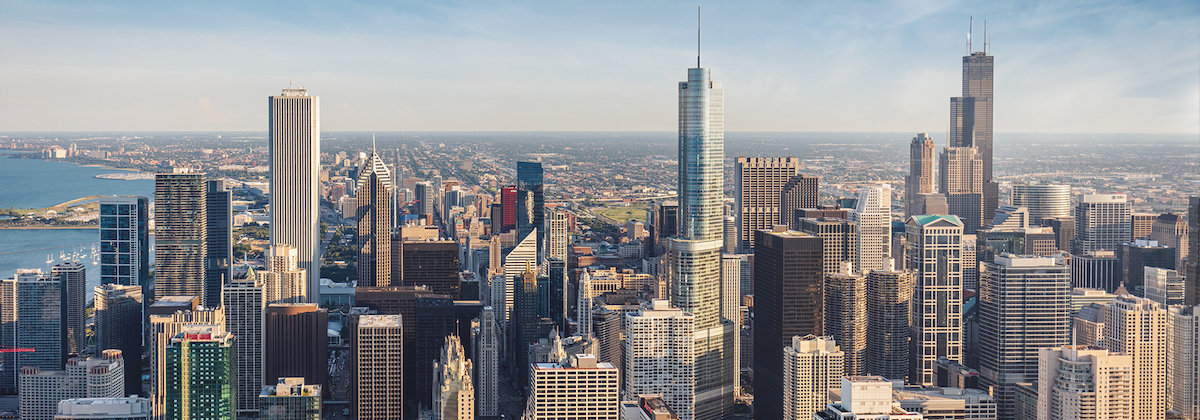
In most personal injury cases, one of the few issues that both sides can agree on is that settlement is better than trial. Why? Mainly because it’s quicker and cheaper. As an injury victim, you might win more at trial than you would in a settlement–but you might lose and receive nothing.
There will be no trial unless you refuse to give up until one happens. Whether you do or not depends on numerous factors.
Evidence Collection

Before you demand the resolution of your claim through either settlement or trial, you need a good idea of how much it’s worth. You’re probably entitled to far more than mere reimbursement of your medical bills. Your lawyer can collect evidence that might give you a ballpark estimate of your claim’s value.
Initial easily available evidence can include:
- Medical bills
- Medical records
- Proof of lost wages
- Expert reports (from an accident reconstruction specialist, for example)
- Photographs of your injuries
- Photographs of the accident scene
- Eyewitness statements
- Police or accident reports
- Receipts for out-of-pocket expenses such as child care, medications, medical supplies, etc.
Many more items of evidence are possible, depending on the details of your case.
The Demand Package
The demand package consists of a demand letter and supporting evidence (such as the items listed above). Ask your lawyer to draft it, sign it, and send it to whoever you are expecting to pay your claim (probably an insurance company). Negotiations could begin and end here or continue for quite some time.
Filing a Lawsuit
You can file a lawsuit even while you’re still hoping to settle your claim, and there are often good reasons to do so.
Filing a lawsuit means:
- Submitting a formal written complaint with the court clerk;
- Paying the filing fee, which will vary according to the amount of your claim, and
- Service of process for delivery of the lawsuit documentation to the defendant by a third party such as a sheriff or professional process server.
An experienced lawyer can draft a formal complaint and help you throughout the lawsuit process.
Pretrial Discovery
Pretrial discovery is a court-supervised evidence-gathering process that might begin soon after you file your lawsuit complaint. In this process, you demand evidence that is in the opposing party’s possession, and they do the same to you. Sometimes, you can demand evidence from a third party, such as a hospital, a witness, or a bank.
How the Discovery Process Works
In pretrial discovery, each party can interview the other side’s witnesses (including testifying expert witnesses); submit written questions that the other side must answer under oath; demand copies of documentary evidence that is in the possession of the other party; demand access to physical evidence such as a totaled car; and ask the other side to admit or deny certain case-related facts. If the other side refuses to cooperate, you can petition the court for help.
Evidence that might surface in the pretrial discovery phase of a personal injury case can include:
- Eyewitness statements at the scene of the accident;
- Data from a vehicle’s event data recorder;
- Testimony from the other side’s expert witnesses;
- Surveillance video footage of the accident;
- Cell phone records to establish distracted driving;
- Financial records to determine economic damages;
- Employment records. to substantiate your claim of lost earnings;
- Property damage receipts;
- Insurance policy information;
- Correspondence with insurance companies; and
- An independent medical exam of your physical condition conducted by the defendant’s chosen doctor
This list only scratches the surface of possible evidence. In pretrial discovery, you can demand any items reasonably calculated to lead to admissible evidence, even if they are inadmissible in court (a police report, for example).
Pretrial Discovery and Negotiations
It is often the case that you file a lawsuit without enough evidence to win. That’s OK as long as pretrial discovery yields enough additional evidence to swing the scales of justice in your favor. And that is often exactly what happens.
Pretrial discovery can take a long time, however-–several months or even a year is not an unrealistic timeline. It all depends on the complexity of your case. Medical malpractice and product liability cases tend to be the most complex personal injury cases.
Mediation
If pretrial discovery fails to yield enough evidence to force the defendant to settle on your terms, you can seek the help of a third-party mediator to help you reach a compromise. These mediators are typically trained in the art of mediation. A court may push you to mediate, or even require you to at least try mediation before they will schedule a trial.
Settlement
If you do manage to reach an agreement with the opposing party, a handshake will not be enough to seal the deal. It shouldn’t be anyway, even though verbal settlement agreements are usually enforceable if you can prove their terms. Your lawyer should participate in the drafting of the agreement.
The deal works like this–you promise to withdraw your lawsuit and forever abandon your claim. In exchange, the opposing party agrees to pay you the amount of money you both agreed to. If both parties sign the settlement agreement, there will be no trial. If the opposing party refuses to pay, you can take them to court on a contract claim (the settlement agreement is the contract).
Jury Selection
The Illinois jury selection process is essentially competitive, and its outcome could make or break your claim. Strictly speaking, the jury selection process is not part of the trial itself. A jury trial is not inevitable-–both sides can agree to let the judge decide the case without even empaneling a jury.
Trial Process
After jury selection is complete, trials generally proceed in the following manner:
- Opening statements: Each side’s lawyers present their positions to the jury in court.
- Witness testimony and cross-examination: Each side interviews friendly witnesses and grills the opposing party’s witnesses.
- Closing arguments: The lawyers summarize the evidence and appeal to the jury to decide in their client’s favor.
- Jury deliberation and verdict: The jury decides the case. This could take minutes, hours, days, or even (in rare cases) weeks.
The average trial lasts for a few days, but they can vary from a few hours to a few weeks. If you don’t like the decision, you can appeal but appeals are often unsuccessful.
A Chicago Personal Injury Lawyer Can Prepare Your Case for Trial
If your claim is substantial enough to even tempt you to consider going to trial, it’s probably substantial enough to require you to hire a lawyer. A free initial consultation with our Chicago personal injury lawyer is the first step towards making that happen. Contact us today, Attorneys of Chicago Personal Injury Lawyers will give you the help you need to move forward, call us at (872) 324-4375.
